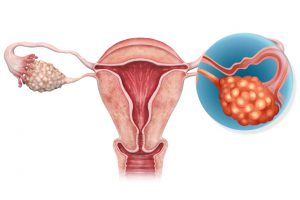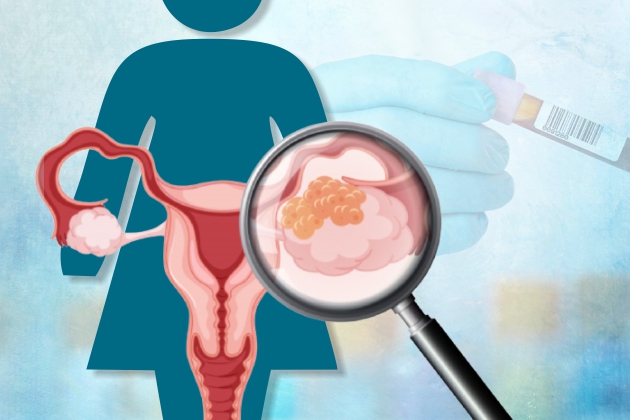

Normal and noncancerous conditions that can increase the CA-125 level are:
- Endometriosis
- Liver disease
- Menstruation
- Pelvic inflammatory disease
- Pregnancy
- Uterine fibroids
Why Is CA-125 Blood Test Performed?
- For the determination of ovarian cancer
- To monitor the treatment of ovarian, endometrial, peritoneal, or fallopian tube cancer
- for checking for the signs of recurrence
- To look for early signs of ovarian cancer in women who are at high risk for the disease
How Do You Interpret the Results?
Let us understand the results of a CA-125 blood test. The unit used to denote the amount of CA-125 protein present in the blood is units per milliliter (U/mL).
- The normal value of CA-125 is 35U/mL
- If the value of CA-125 is more than 35U/mL, it indicates a person may have cancers such as ovarian, endometrial or, peritoneal
- If the value of CA-125 is less than 35 U/mL, it indicates that cancer is responding to the treatment
Who Should Get Tested?
A CA-125 blood test is not recommended for a woman who has an average risk of ovarian cancer. On the contrary, doctors recommend a CA-125 blood test for a woman who has a high risk of ovarian cancer.
The list of high risks of ovarian cancer are:
- Mutations in the genes such as BRCA1 and BRCA2 genes
- A family history of ovarian cancer
- A family history of breast cancer, colon cancer, uterine or rectal cancer
- A history of endometriosis
- Never been pregnant


- Feeling constantly bloated
- Loss of appetite
- Increase in urination
- A swollen tummy
- Feeling tired
- Indigestion
- Back pain
- Discomfort in the stomach
- Pain during intercourse
- Unplanned weight loss
If you are concerned about the risk of ovarian, endometrial, peritoneal, or fallopian tube cancer, consult your doctor today! Get the CA-125 test done as advised by the doctor and ask about the ways to reduce the risk.







